Inventory Forecasting for Dropship Sellers (What's Different + Tools)

Kenneth Cole experienced a 90% reduction in costs by moving to Flxpoint
Flxpoint makes it easy for retailers, distributors, and brands to automate multi-channel ecommerce, keep orders flowing, and grow without the headaches—so you can focus on strategy, not spreadsheets.

Trusted By Thousands of Ecommerce Teams of All Sizes

Trusted By Thousands of eCommerce Teams of All Sizes











.png?width=225&height=67&name=Brownells_Logo_Black%20(2).png)
Effortlessly connect, manage, and grow your dropshipping business—onboard vendors, sync products, and keep orders running smoothly, all in one place.
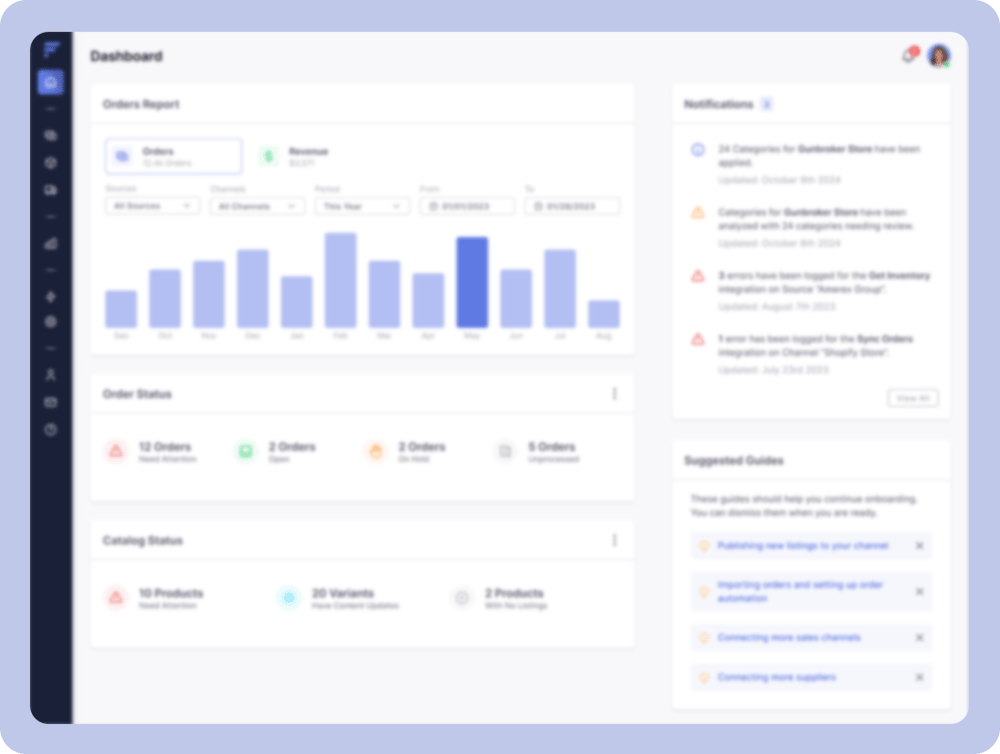

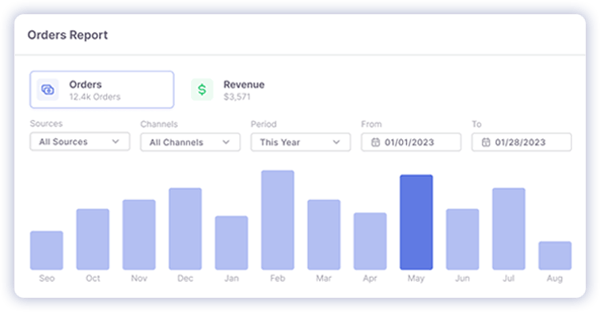
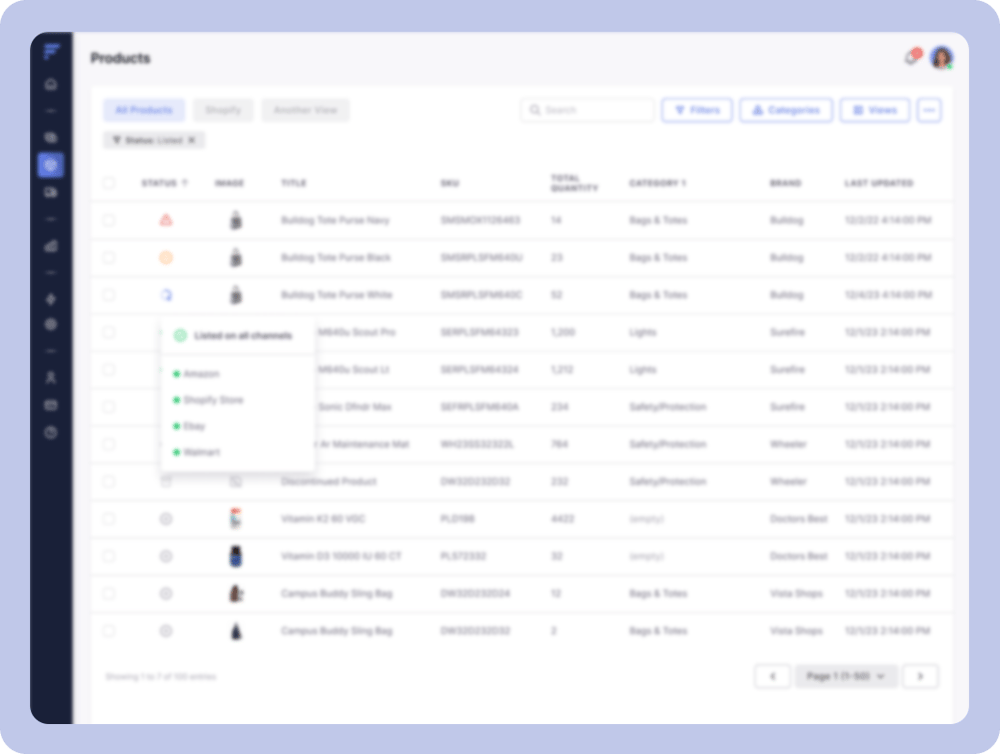
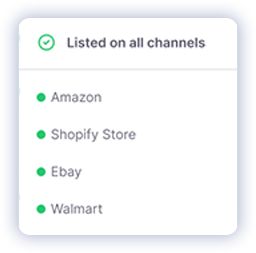
Whether you're managing multiple suppliers across various channels or growing your physical store into an online success, Flxpoint eliminates the manual upkeep and makes listing management a breeze.
Your data, when and where you need it. Connect your suppliers, channels & accounting system—no coding needed, just effortless automation to keep your business running smoothly.




Tired of jumping between systems? Flxpoint unifies your suppliers, sales channels, and fulfillment operations, giving you real-time control over every order, product, and inventory update.
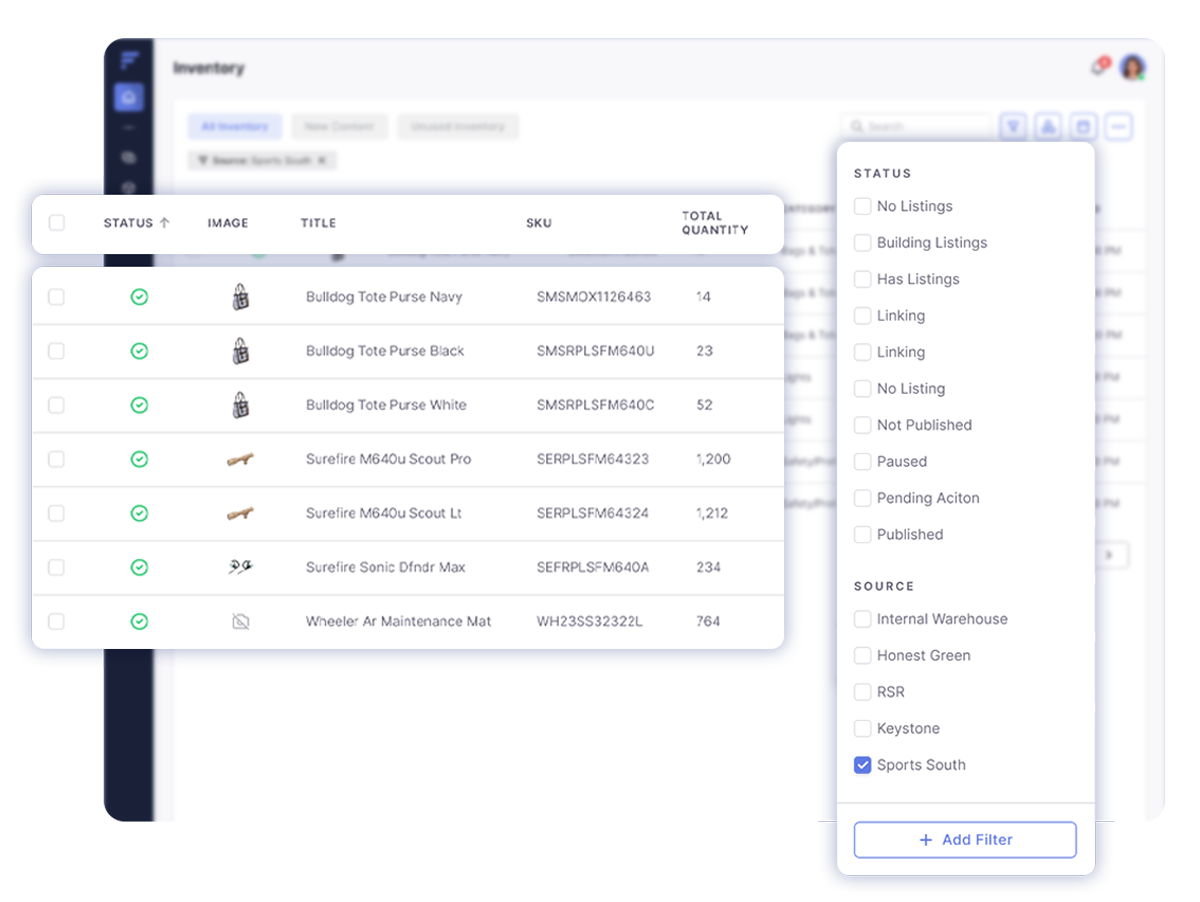
Automatically route orders to the best supplier or warehouse—no spreadsheets, no guesswork. Flxpoint optimizes fulfillment for speed, cost, and accuracy, so you can scale with confidence.
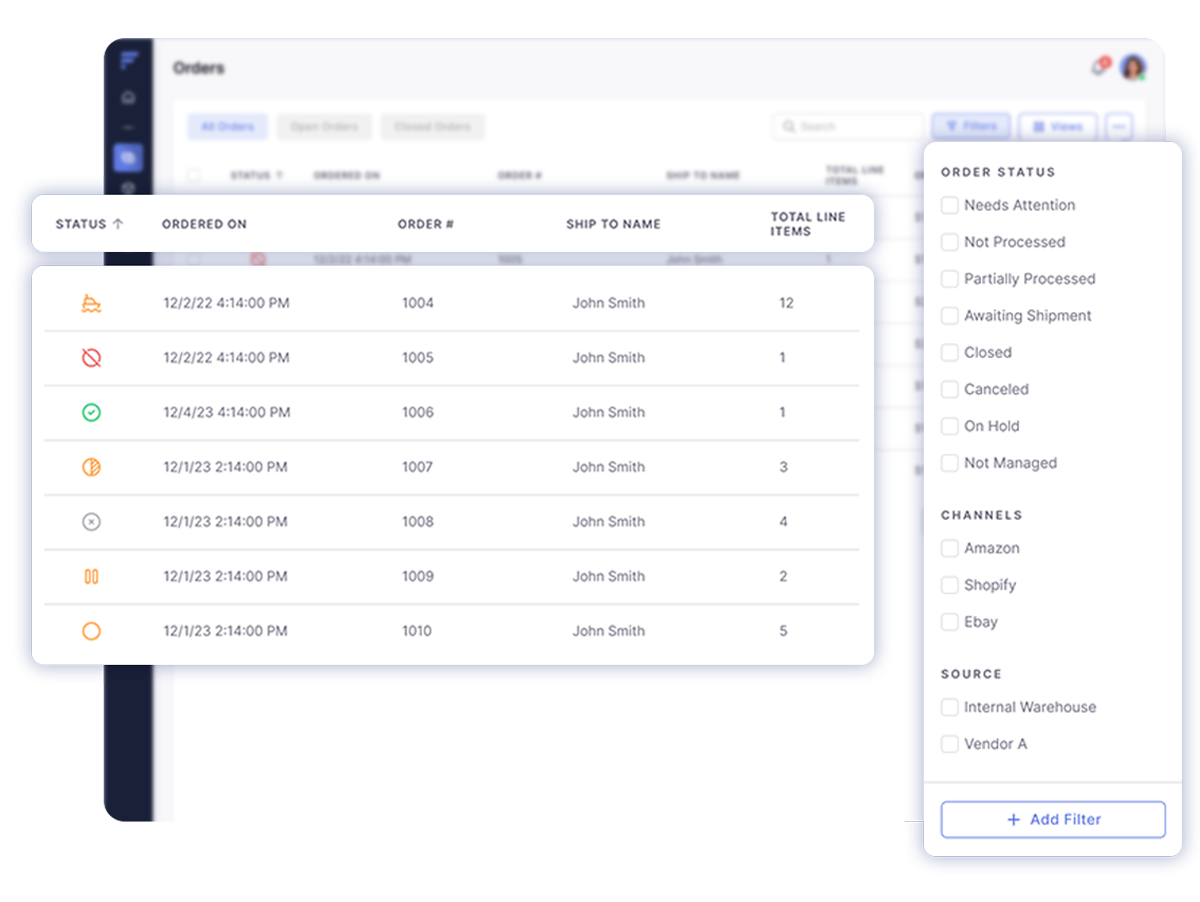
Prevent overselling and stockouts with real-time inventory updates across all channels. Flxpoint keeps everything in sync, so you never sell what you don’t have or miss a sales opportunity.
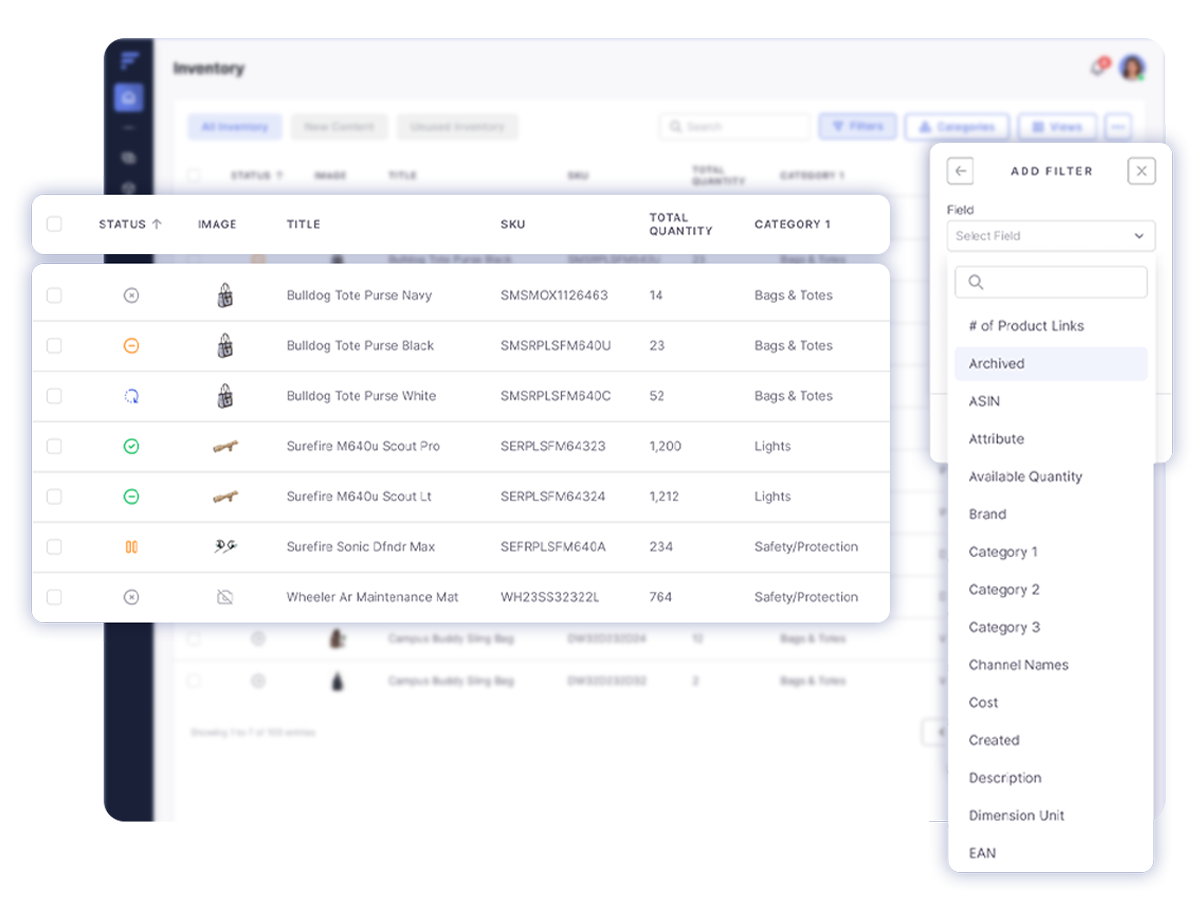
Flxpoint integrates with your suppliers, marketplaces, and accounting software—no coding required. Automate workflows, keep data flowing, and run your business without tech headaches.
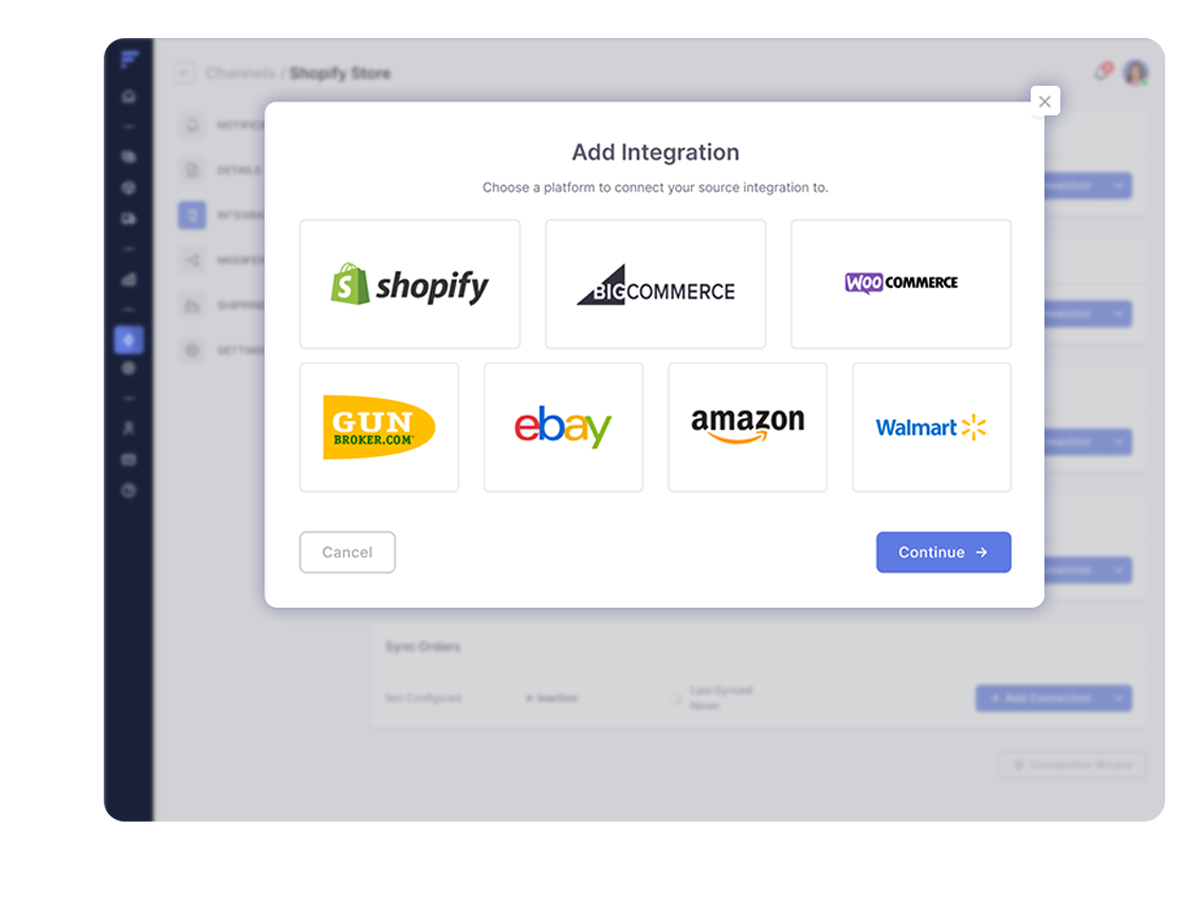
Say goodbye to supplier headaches. Flxpoint makes it easy to onboard, sync, and manage vendors, products, and orders—so you can grow your dropshipping business without the manual work.
No more guessing or overselling. Flxpoint syncs inventory across all fulfillment sources, so you always know what’s available, where it’s stored, and how much it costs—instantly.
Automate order routing and fulfillment across dropship, 3PL, and in-house locations. Flxpoint ensures every order goes to the best supplier, saving time and cutting costs.
Managing your product listings shouldn’t be a hassle. Flxpoint centralizes product data, pricing, and updates, so you can stay competitive and in sync across every sales channel.
"They had never used Flxpoint before. But working with [the Flxpoint] team, they learned it and we're about to onboard our newest footwear partner, and you know that's big business for us.”
Mitul PatelKenneth Cole
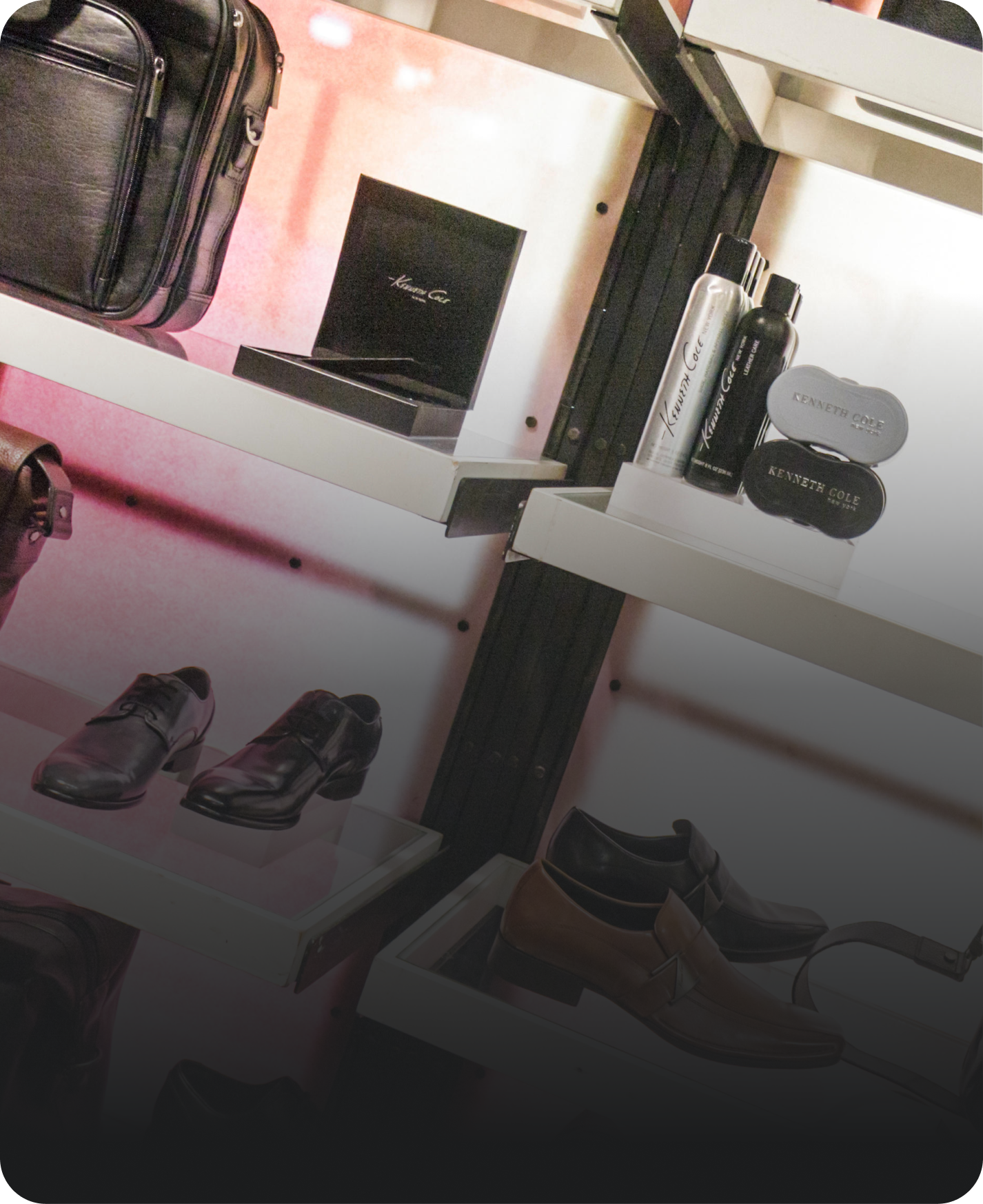

“It's a great extension of the partner's brand into our environment that's living and is accessible and most of all purchasable. So Flxpoint was a perfect fit for that kind of touch point of the strategy.”
Lee CorkranRealtree
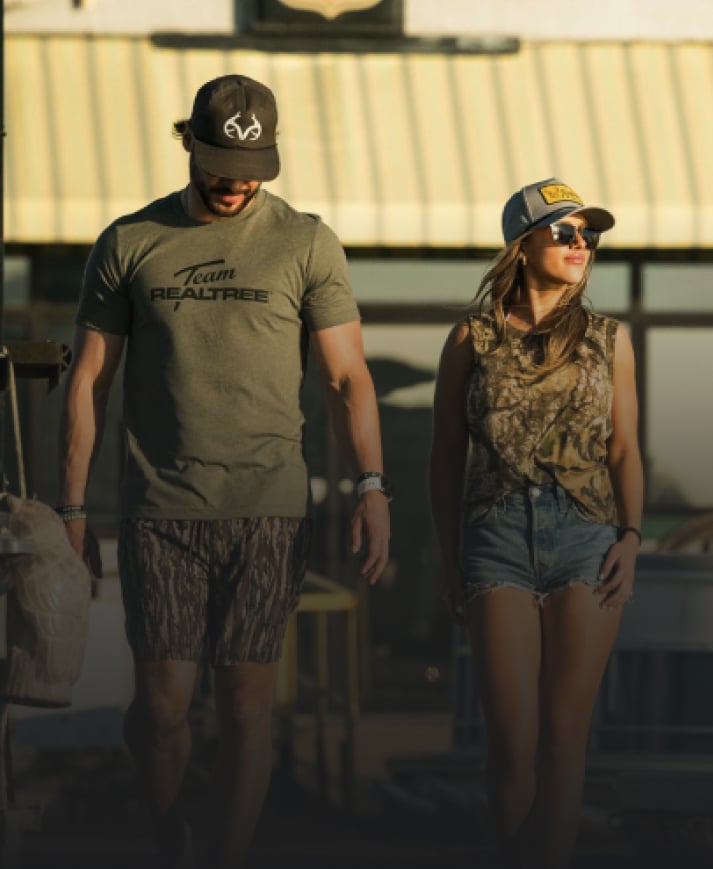

“I went line by line… whatever the inventory number was and cost value was, I calculated it and was blown away by how much that was worth— $300 million worth of product that I added to our web store.”
Chris MekdaraRifle Supply


"Automation is the key to maximizing your volume. [Flxpoint] comes right into our flow — everything's automated. We want it to be quick and efficient. So that's what we love about Flxpoint."
Shaun Brown & Clay CanningScreenSkinz
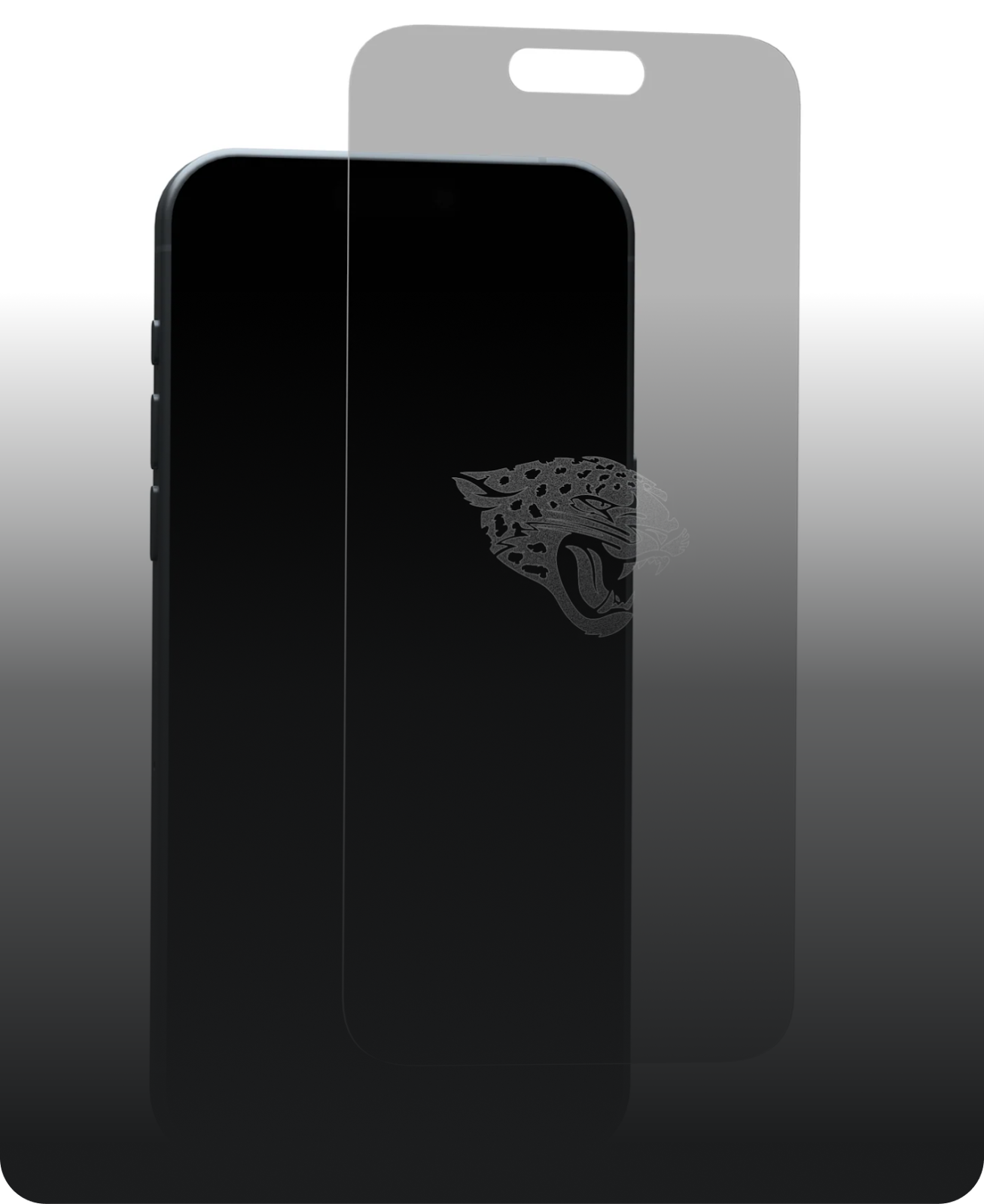

"We ended up switching to Flxpoint, and it has been a much smoother process. Where it took us six months to get onboarded with the other company, we were up and running in a week or two with Flxpoint."
Ashley ChingInhaven


"The only way to actually scale was to go through Flxpoint… You can’t even come close to hiring someone to do what Flxpoint does for the price."
Jonathan WilliamsBlack Patch Performance
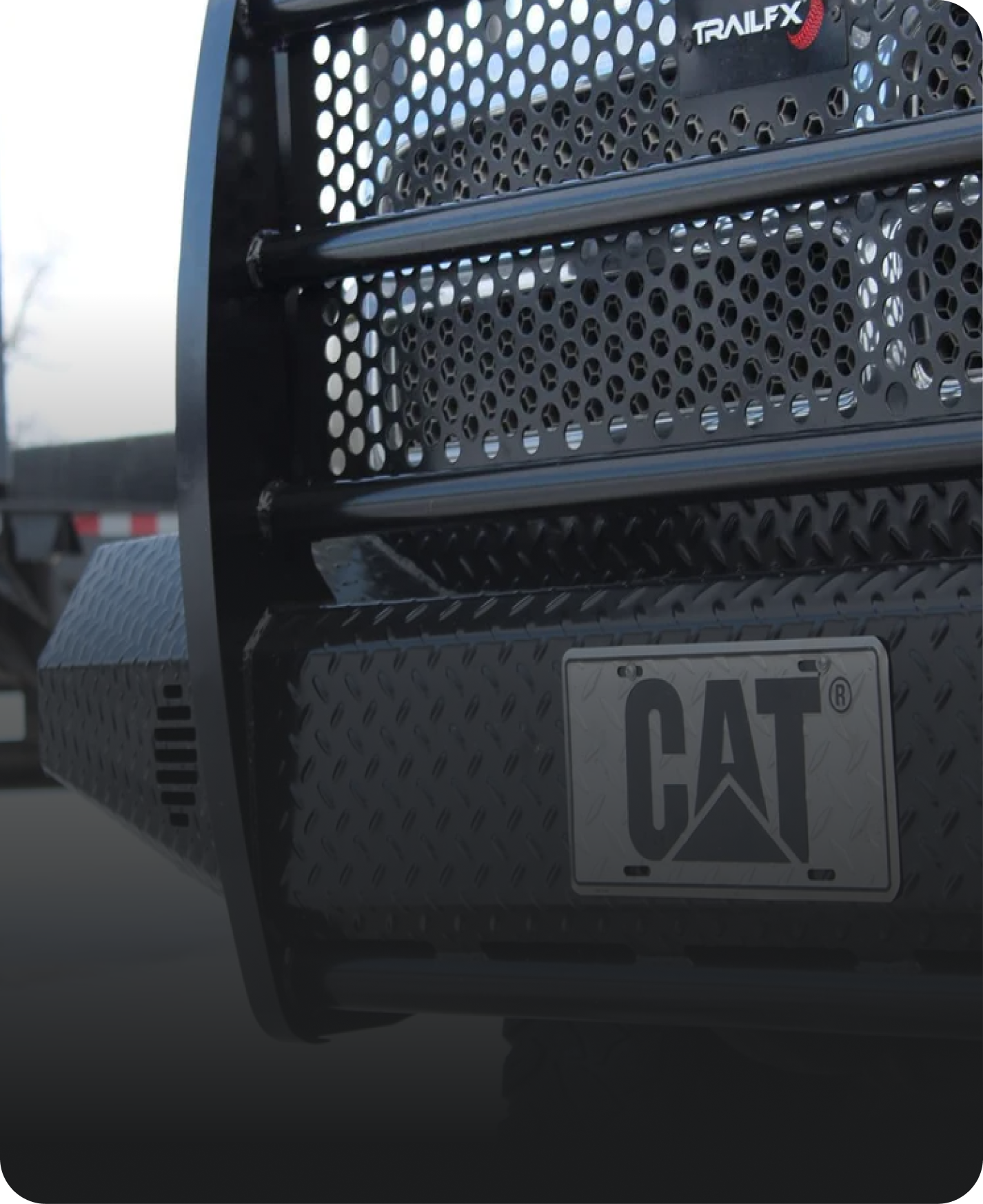







You’re never on your own with Flxpoint. Our expert team is here to help you solve challenges, optimize workflows, and scale with confidence—because your success is our success.


Flxpoint saves you time and increases revenue by automating inventory, orders, and fulfillment—so you can focus on growing your business instead of managing spreadsheets.